
Károly Eperjes
Birth : 1954-02-17, Hegykő, Hungary
History
Eperjes Károly (Hegykő, 1954. február 17. –) Kossuth-díjas és Jászai Mari-díjas magyar színművész, a Halhatatlanok Társulatának örökös tagja.
Szülei, Eperjes Károly és Kertész Imelda eredetileg papnak szánták. A színészpálya előtt volt műszerész és labdarúgó is. 1974–1976 között a Videotonban dolgozott. A Színház- és Filmművészeti Főiskola elvégzése után – Major Tamás és Székely Gábor tanítványa volt – 1980-ban a kaposvári Csiky Gergely Színházban kezdte pályáját. 1981–82-ben a Nemzeti Színház tagja volt. 1982–1987 között a Katona József Színház színésze volt. 1987–1988-ban a Radnóti Színpadhoz szerződött. 1988 óta szabadfoglalkozású színész. 1993–1996 között a Művész Színház, Thália Színház, Kelemen László színkör tagja volt. Az 1994-es országgyűlési választásokon a Fidesz országos listáján indult, ahonnan országgyűlési mandátumot szerzett, de egy hónapra rá lemondott. 1998 és 2012 között az Új Színháztagja volt, a társulatot azután hagyta el váratlanul, hogy Dörner Györgyöt nevezték ki a teátrum élére. 2011-ben sikertelenül pályázta meg a Győri Nemzeti Színház igazgatói székét, jelenleg a Veszprémi Petőfi Színház művészeti tanácsadója. A Bubik István-díjkuratórium, 2013-tól a Nemzeti Színház tagja.
1977-ben házasságot kötött Balogh Erzsébettel. Két gyermekük született: Krisztián (1978) és Borbála (1990).
Forrás: Wikipédia

Writer
The film, taking place in 1950, presents the story of Father Leopold and the monks of his order struggling to once again revive Christianity in a country trying to scrape itself together after the war. Initially, the communist powers do not hinder their work, and the Church was even able to regain possession of holy objects hidden during the war. This "peaceful" state does not last long. Father Leopold is arrested on trumped up charges, and in order to break him, he is subjected to cruel torture. His former student, Lieutenant Keller, who turned his back on religion and now believes in the socialist system, is appointed - upon the command of Major Fyodorov - to extract a confession of guilt. But the Father's perseverance and resistance changes everything.

Leopold
The film, taking place in 1950, presents the story of Father Leopold and the monks of his order struggling to once again revive Christianity in a country trying to scrape itself together after the war. Initially, the communist powers do not hinder their work, and the Church was even able to regain possession of holy objects hidden during the war. This "peaceful" state does not last long. Father Leopold is arrested on trumped up charges, and in order to break him, he is subjected to cruel torture. His former student, Lieutenant Keller, who turned his back on religion and now believes in the socialist system, is appointed - upon the command of Major Fyodorov - to extract a confession of guilt. But the Father's perseverance and resistance changes everything.

Director
The film, taking place in 1950, presents the story of Father Leopold and the monks of his order struggling to once again revive Christianity in a country trying to scrape itself together after the war. Initially, the communist powers do not hinder their work, and the Church was even able to regain possession of holy objects hidden during the war. This "peaceful" state does not last long. Father Leopold is arrested on trumped up charges, and in order to break him, he is subjected to cruel torture. His former student, Lieutenant Keller, who turned his back on religion and now believes in the socialist system, is appointed - upon the command of Major Fyodorov - to extract a confession of guilt. But the Father's perseverance and resistance changes everything.

Father Kristóf
A cardiologist is sent into retirement, but he feels at loss without his work. He returns to his home village to work as a general practitioner. This is the start of his ordeal: he's confronted with raw reality, which finally brings him to his knees. But music has the last word.

István
Tutajos is an excellent student whose parents decide to reward his academic achievements with a vacation to the countryside. Robbed of his gadgets and easy city-lifestyle, Tutajos finds himself completely out of his element – until a goodhearted ranger named Matula teaches him how to get back to nature. As Tutajos’ best friend Bütyök joins him on his vacation, the two boys learn the joys of camping, hunting, and living off of the land.
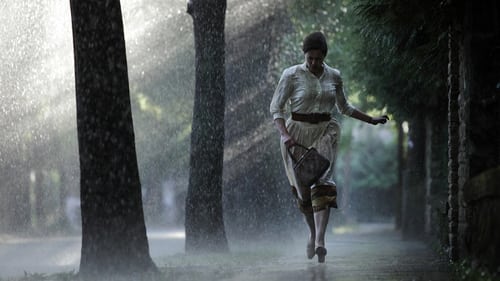
Tibor
This is a story of a special relationship between two women, a writer and her maid.

Gáspár/András

Károly
The aging Eszter clarify outstanding relationship.

Nyomozó

Anzelm
In the second half of the 1800s, the daughter of a Debrecen family marries a landowner, Kálmán Jablonczay. The couple move to the husband's castle. The marriage starts off happily but the new wife, Mária Rickl, soon finds herself at odds with the gentry lifestyle, her husband and her father-in-law...

Soma Kardics
Young honest public official is sworn in after his predecessor had to leave due to a corruption scandal. Soon, the young idealist discovers just how far-reaching the corruption is in his town and how easy it is to become corrupt yourself.

János Szabó
The subway driver Szabó János is tired of conflicts, that so many other people across the town share the same name, so he decides to kill all of them, that he will be the only one left.

Count István Széchenyi
This epic story takes place between 1820 and 1860 during the Habsburg Monarchy, and portrays the life one of the greatest Hungarian aristocrats - Count Széchenyi - who was born with extra-ordinary mental and spiritual talents. In the years following the fall of Napoleon the young count Széchenyi irresponsibly seduces his brother's wife, and the consequent scandal ruins his career as an army officer. After the sudden death of his humiliated lover Count Széchenyi drastically changes his character from that of a shallow young man into a responsible nobleman seeking to conquer his fate by creating great achievements in his remaining life.

Apa
The tumultuous history of Hungary through the twentieth century is viewed through the saga of the Hungarian-Jewish, furniture-manufacturing family, the Vendels. After taking over the once successful, but now failing, family business in the 1930s, the family patriarch's dashing elder son decides that the family needs an infusion of new blood. A matchmaker presents him with a photo of a pretty German nursery school teacher. When the two meet, they instantly fall in love, but because Hungary has an alliance with Germany, and the Third Reich prohibits marriage between Gentiles and Jews, the couple must hide their union. Their marriage ultimately stands as a dark foreshadowing of rougher times to come as troubles ensue with the advent of World War II, when the family, its employees and servants must retreat to the basement, where the shop emerges increasingly as a refuge in a world growing more violent and less tolerant.
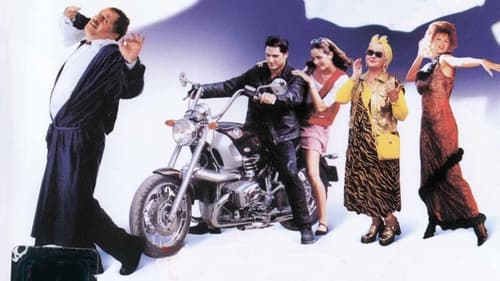
Hyppolit
Mr. Schneider became wealthy after the end of the communism, but still remained a simple man. Her wife although wants a lackey.

Boksa Rezsõ 'Tutti'
The makers, especially Péter Tímár wanted to invoke the atmosphere of the communist dictatorship of Rákosi era lasted from 1947 to 1956. I think they've managed to reconstruct it very much: if you read the history books about the era and newspapers from that times, if you listened to your parents' and grandparents' tales, you will experience the similarities are shocking. The main character (Tutti - Károly Eperjes) is excellent, Eperjes, acting an eccentric, but likable crank is in his royal spirits.

In the year of change in Eastern Europe, in a remote village, the regular movie show, scheduled once a week, terminates due to the motor courier’s being killed in an accident. The children find the scattered film containers, and along with the old reels left in their place they play the films they have seen so often before.

January 1957, in a small town in the French-speaking part of Switzerland. A middle-class house, the home of two sisters, Clara and Thérèse, whose characters could not be more different. After their father is institutionalized, the two women take over the family business, which specializes in precision optics. One day, the floor of the music room collapses after being ravaged by termites. Karoly, a Hungarian refugeee and jack-of-all-trades, is hired to repair the damage. The Hungarian's presence causes ripples in the seemingly unchangeable life of the two sisters...

Abib
Sawdust Tales is a whimsical and timeless parable on survival in hard times and the force of a first love against all odds. In a timeless no-mans land scarred by social decay and imminent war, a circus troupe awaits the arrival of the mysterious Rupert who is to deliver them from danger into a better world. The old and wise tightrope master keeps a watchful, loving eye on his young apprentice who, to his concern, could be drafted into the army at any moment. To make matters worse, the boy falls in love with a mermaid...

Tibor Szabó
This Hungarian comedy depicts the exploits of 8 members of a travelling troupe of actors and musicians as they move about the country performing a series of one night stands.

Tamás is trying to escape the meaninglessness of everyday small town life. He becomes an Indian and builds a hut by the forest. Although he later returns to the town to is mother, he remains an eccentric even there; a cowboy. Everybody pokes fun at him, only children regard him with respect. He finds a friend who also wants to become an Indian, but the boy is soon shut into an insane asylum.

Spéci

Béla szomszéd
The story happens in 1989 in the suburbs of Budapest, where the neighbor maintains an underground worker's guard training base, while the youngsters fall victim to a mistakenly posted letter.

Marci
From the film-shooting in the Buda Castle Marci and his friend go to a well-paying job. The scene is a big castle in the middle of a huge park. They enjoy the company of the Kid and the beautiful naked French girl, Nathalie. Their job is to watch the monitors on which they can see the Moscow coup détat. By the time Gorbachev is executed the Communist and the Nationalists have taken turns in occupying the castle and the park.

1958. In the cell of the condemned, seven men await the signs of an approaching execution. All of them recall their pasts and envision their wish-dreams.
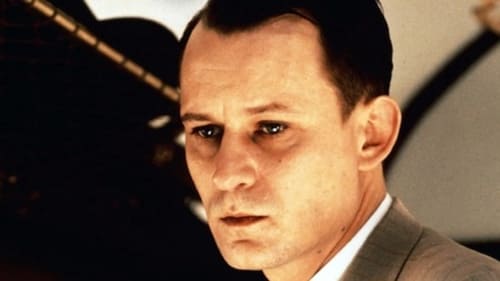
Szamosi
Swedish account of Raoul Wallenberg, the man responsible for the largest rescue of Jews during World War II.

Margó and Ildi are good friends. Margó lives with her simple, conservative parents, her fiancé is a roadie, her lover has been in prison for two years. Ildi was a pupil of a reformatory school, she buried an Araba husband already and her Rumanian partner is living in Paris. She lives together with a Yugoslavian man in a rented flat. Both are models at the Scholl for Fine Arts, attend an evening school and earn their money by selling their bodies. The lover of Margó, Attila is suddenly released. Margó and Ildi want to get rid of him, but Attila does not let them do that...

Berlioz
Eckermann (Laszlo Kistamas) is a listless computer whiz who spends most of his time lounging in a bathtub holding imaginary conversations with cartoon characters usually more popular with children than grownups. He has some friends who want to use his skills to steal some money from a local gambling joint. He works out a scheme for his friends and returns to his tub. At some point along the way, he is joined in the water by a lovely Czech refugee, who (perhaps inadvertently) makes it possible for him to die there.

Van Rees
In a small port town at the end of the 19th century children are disappearing. A mysterious man in black who stalks the town may be Death itself. And nine-year-old Laurin is suffering terrifying dreams and hallucinations of a man carrying a sack and frightened children calling for help from behind closed windows.

Teacher Csõrös
In the country reformatory school both the teacher and the children are trapped by the circumstances. From among the pupils excels Sanyi, who cannot accept the fact that his mother does not love him and he keeps on escaping after her. From among the teachers it is Mr. Csőrös who distinguishes himself by listening to the children, looking for those who escaped, Sanyi feels affection to him.
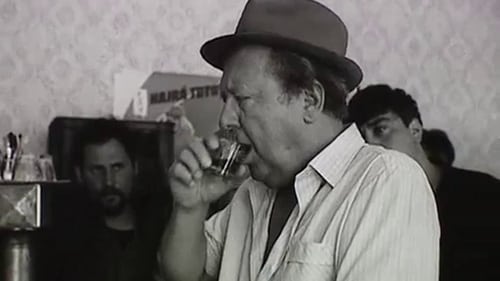
Józsi
In the small village of Rátót, every male is called Béla. When a woman gives birth to her child, she names him Józsi...

Férj
The actress is always lonely, she has nobody to love. She adopts a young boy from the orphanage, who formerly arrived on Earth by a flying suitcase and a policeman took him to the orphanage. The actress would be willing to adopt him, but there is no hope for this at the beginning.
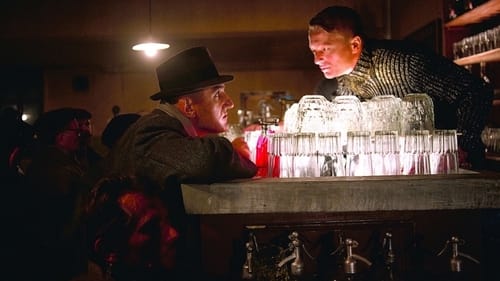
Monori Sándor
A deep drama about life in Hungary after the WW2 until the revolt against Russians in '56. The main character is the head of the black market in Budapest. He thinks he can buy everyone and everything but at the end he must face that he can't buy life. A must-see for everyone. Casting involves some of the greatest Hungarian actors. The story takes place in the eighth district of Budapest focusing on the market place on Teleki square which is still working. The movie contains some archive footage of real fight during the revolution.

During World War II Eszter has to choose: she either follows her husband abroad, who is chased by the Gestapo or stays with her daughter from her first marriage.

Palaestrio

Vendel Imre is a driver, his wife is expecting a baby, they have two sons. Before 1945 Vendel was a military officer. In 1951 they receive a letter from the Ministry of Interior: they will be transported to a forced domicile, allowed to take 50 kg personal belongings per person with them.

The film takes place the Budapest Amusement Park in 1919, just before and during the proletarian dictatorship. After the outbreak of the proletarian dictatorship, both the former employee who returns from Russian captivity as a communist and the domestic philosopher spreading Marxists ideology regard the nationalisation of the Fun Fair vitally urgent. In this, the daughter of the owner of Orpheum Blau, Ilona, assisting most enthusiastically.
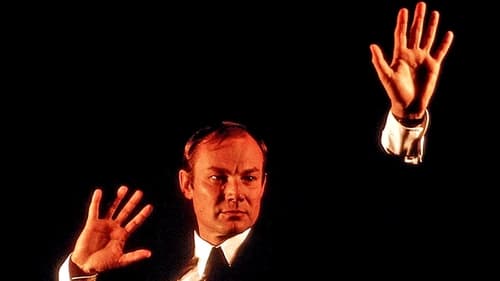
Tibor Nowotny
A man's story parallels Hitler's rise. Austrian Klaus Schneider, wounded in World War I, recovers in the care of Dr. Emil Bettleheim. Bettleheim discovers that Schneider possesses powers of empathy and of clairvoyance, such that could aid suicidal patients. After the war, with one friend as his manager and another as his lover, Schneider changes his name to Eric Jan Hanussen and goes to Berlin, as a hypnotist and clairvoyant performing in halls and theaters. He always speaks the truth, which brings him to the attention of powerful Nazis. He predicts their rise (good propaganda for them) and their violence (not so good). He's in pain and at risk. What is Hanussen's future?

Áron
Story of the owners (Mastroianni and Schygulla) of a fancy nightclub in Budapest before and during WWII.
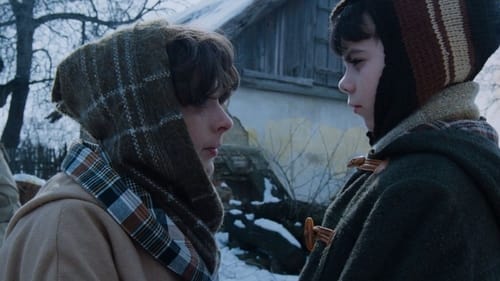
Ákos
The story of 10-year-old boy and his family against the backdrop of the bloody events of 1956, in Budapest. Children do not yet understand what is going on, but they're happy because the schools are closed. But gradually, to adults and children comes the understanding that something terrible is happening. Disappearing relatives, friends, and even killed some. Tips sent an army to put down the counterrevolutionary rebellion.

1944. At the end of the war ensign Bojtár gets from the captivity of the partisans into that of the Hungarian Nazi and he escapes at the price of a quasi-murder. He has to hide, the more so because his victim did not die and searches for him.

Brenner József

Közeg
It is a tragedy, set among low-lifes on the outskirts of Budapest. Dramatic Exchange describes it as "Widely considered to be the most important Hungarian play of the last 20 years". The odd title of the play refers in the first instance to the chicken heads that an old woman feeds to her cat. However, it can also be taken to refer more broadly to the obtuse behaviour of the main characters in the play. The play is an odd mixture of pathos and nihilism, written against the bleak background of Stalinist totalitarianism from which Hungary was emerging. As with much modern drama, there is no hero in the play. The only noble behaviour that one can find belongs to one of the characters in the past, when he was a child, but he is no longer as he was. The hint that what once existed might be achieved again is the only faint ray of hope in a very bleak view of the human condition.

Sanyi is the driver of a co-op bus and lives in tenancy with his wife and son. In order to get along he buys the auctioned truck of the co-op and becomes a transportation entrepreneur. First everything goes well, they start a construction.

Szerémi Ernő
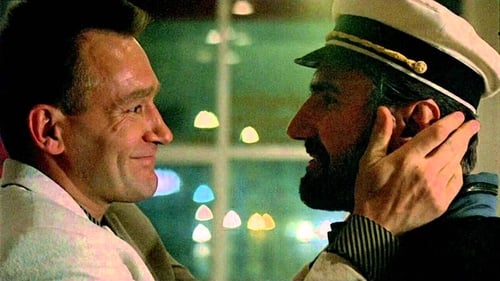
Makai
Réb went to the United States about 20 years ago and in the eighties he returns to Budapest with his teenager daughter...

1956. Bébé is a painter, but he has not worked for years. The news arriving form Paris about the death of his childhood friend, Halász Petár affects him deeply, but his reflections are continually disturbed by telephone calls: the Alliance for Fine Arts wants to purchase one of the popular self-portraits of Halász.

Fehér József
The heroes of this story, based on real events at the end of the 1930s and during World War II, face and dismiss the illusions of intellectuals about their ability to transform society. Professor Magyary and his disciples hoped to promote the modernisation of Hungarian society through a radical reform of public administration.

Leutnant Schorm
Set during the fading glory of the Austro-Hungarian empire, the film tells of the rise and fall of Alfred Redl, an ambitious young officer who proceeds up the ladder to become head of the Secret Police only to become ensnared in political deception.

Oszkár Sajek
As a last chance in his career, the young acrobat with a broken leg, Sajek Oszkár, attempts to obtain the wonderful secret from the retired old artist, Uncle Binder Lipi, a secret which was a world hit.

1894. The mortal remains of Lajos Kossuth are brought home from abroad, the railways are lined with people with their hats in hand, and among them stands the teenager Imre Tányér. 1910. The grown-up Imre undertakes the task to solve the question unsolved since 1848-49, i.e. the transformation of peasant life. He fights for the rights of his class, for justice, for human dignity in a society distorted, backward and built on inequality.

In this mix of black comedy and harsh drama, a man and wife are divorced yet still have to share their living quarters even though the wife has remarried -- housing is seriously hard to find in Budapest. Csaba (Karoly Eperjes) has just come out of doing a stint in prison because he stabbed a man while drunk, and when he goes home he discovers that his wife (Mariann Erdos) is now living with someone else in their apartment. Csaba quickly divorces his wife but he still has to move in and share a kitchen and bathroom with her and her new mate, suffering because he still loves her. This untenable situation is complicated by visits from Csaba's mother, and by various women he starts seeing, as well as by a busy-body neighbor. The three main roles of Csaba, his wife, and her lover (Peter Andorai) are excellently interpreted in this satire on social morés and economic realities.

Vologya

Buksi, the smuggler meet with Peter, the intellectual, who has been thought about the perfect crime, without any trace for such a long time. The smuggler forced Peter to work together: Peter's going to plan the action and Buksi's buddies implement it. No clues.

Himself
aka A heart accustomed to silence (2022)
"We walk on the way of the God seeking man with Kossuth Award winner talent Károly Eperjes. In our fist episode we talk with benedictine monk Izsák Baán, with priest Gergő Bese and we can listen wisdom monologue from Antal Spányi county bishop and Balázs Barsi franciscan monk."
"This short was produced in co-production with National Film Institute, Garantiqa and Lighthouse Film."



















